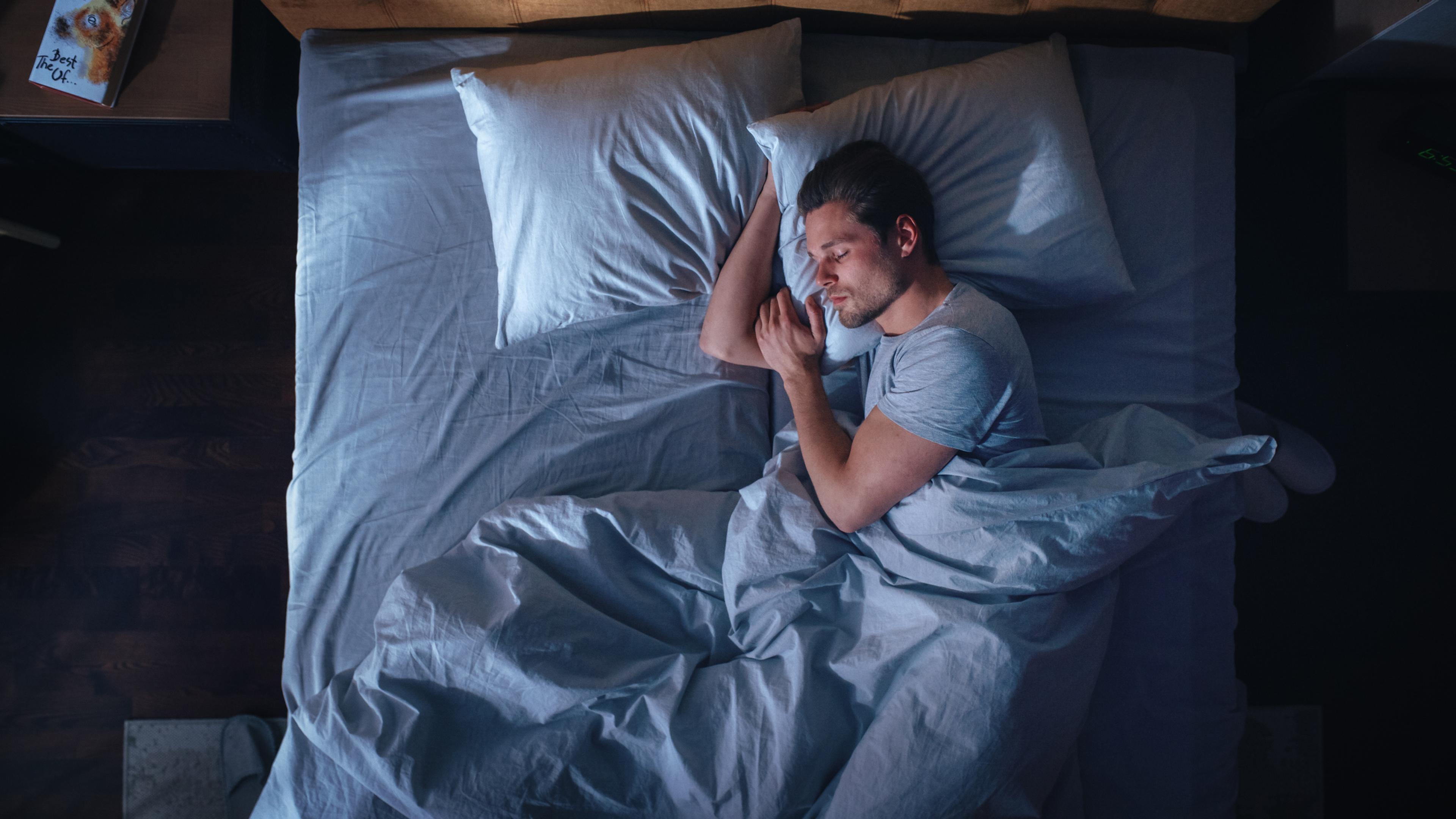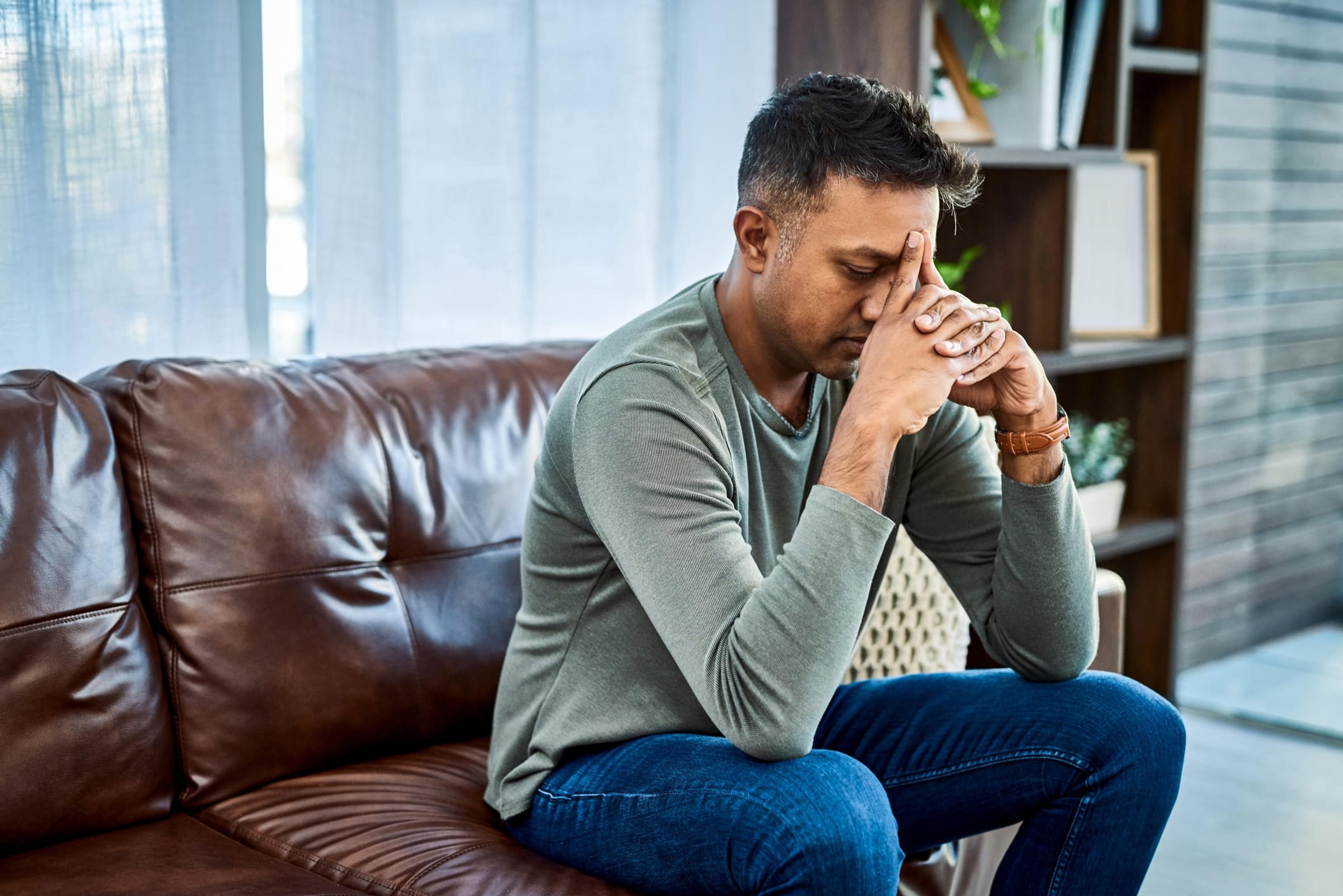What is a Sleep Divorce?
Jake Newby
| 4 min read

It may sound like an oft-putting term, but “sleep divorces” are becoming more common among couples who constantly disturb each other’s sleep.
Partners sleeping in different bedrooms or in twin beds separated by a nightstand used to be something we’d see in old movies or TV sitcoms, but it is a growing sleep trend among U.S. adults. According to a 2023 Sleep Foundation poll of 1,250 survey respondents, 53% of people who sleep separately say it improved their sleep quality. Another survey – conducted by the American Academy of Sleep Medicine (AASM) – found that more than a third of U.S. couples have opted to sleep in separate beds or rooms.
Societal norms indicate that sleeping apart generally happens because the relationship is struggling. But ditching the shared bed in this case is not rooted in negativity. Partners in strong relationships may find this idea beneficial for a variety of reasons.
Why more people are considering a sleep divorce
Differing sleep patterns and preferences can take a toll on a relationship. That’s why making seemingly unconventional sleeping arrangements in the hopes of improving sleep quality should be explored by some individuals. Some potential pros of sleeping separately include:
- Improved sleep quality
- Increased time asleep
- Fewer sleep disruptions
More than 50 million U.S. residents have a sleep disorder, according to the Cleveland Clinic. The following disorders – or signs of a disorder – can make it tough to coexist with another person trying to get some shuteye just a foot away from you:
- Snoring: Light snoring may not disturb the person beside you, but heavy snoring certainly can. Snoring may also be associated with serious disorders like sleep apnea.
- Sleep Apnea: Individuals with sleep apnea tend to start and stop breathing repeatedly during sleep. The disorder is characterized by periodic gasping or “snorting” noises that temporarily interrupts their own sleep as well as their partner's. This can lead to the use of a Continuous Positive Airway Pressure (CPAP) machine as a treatment method. Though more modern CPAP machines are quieter than older models, they may still disturb the person trying to sleep beside you.
- Insomnia is a sleep disorder that can cause a person to toss and turn at night.
- Restless Leg Syndrome (RLS) is characterized by an unpleasant “creeping” sensation, often feeling like it is originating in the lower legs, according to the Centers for Disease Control and Prevention (CDC). However, RLS is often associated with aches and pains throughout the legs. This often causes difficulty initiating sleep and is relieved by movement of the leg, such as walking or kicking.
- Sleepwalking occurs when individuals get out of bed and walk around while still asleep.
External factors can also cause one partner to inflict a sleep disturbance on the other. These can include:
- One person working night shifts and getting into bed late.
- One person’s propensity to hog sheets and covers.
- Conflicting preferences in temperature, noise and light.
What are the downsides of a sleep divorce?
There are some drawbacks to consider when setting up separate sleeping arrangements, such as:
Cost: If you don’t have an extra room in your living space – and/or a second bed – you can imagine the financial conundrums this idea presents.
Decreased security: Sleeping alone may present the possibility of lighter sleep as a person keeps their guard up at night, listening for strange sounds and safety threats as they lie in bed. Some couples feel safe and reassured while sleeping together.
A possible decrease in intimacy: This potential con has two schools of thought: some couples may enjoy increased intimacy due to the improved rest from sleeping separately. Some may enjoy setting aside intentional time for closeness and physical contact. However, other couples may experience loneliness. According to that same Sleep Foundation study, over one-third of couples who begin sleeping in the same bed together again do so because they miss each other.
Sleep is one of the cornerstones of good physical and mental health, along with diet and exercise. If you think your partner is causing you to lose sleep, talk with them about separate sleeping arrangements as a potential solution.
Photo credit: Getty Images
Related reading:





